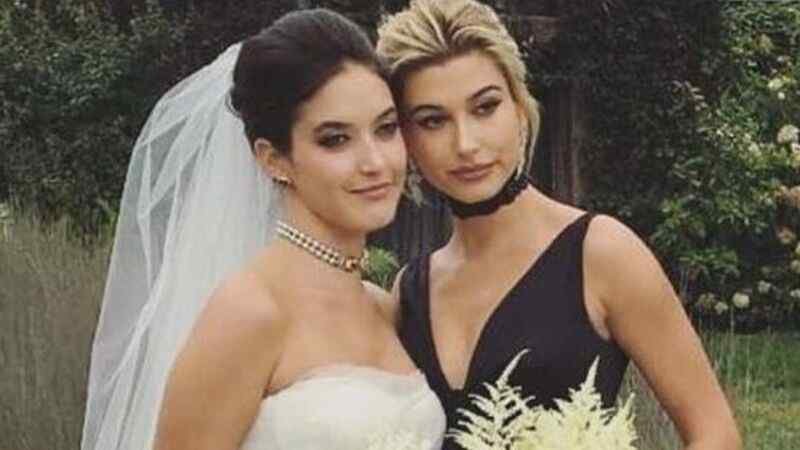
Exploring Olivia Rodrigo’s Ethnic Background: A Deep Dive into Her Heritage
Olivia Rodrigo, a name that has skyrocketed to global fame due to her extraordinary talent and relatable music, holds an intriguing and diverse ethnic background. Her cultural heritage is not just a part of her identity but a testament to the rich tapestry of her family’s lineage. This article takes a comprehensive look at Olivia Rodrigo’s ethnicities, delving into her ancestral roots and their influence on her life and career.
A Brief Overview of Olivia Rodrigo’s Rise to Stardom
Olivia Rodrigo became a household name with the release of her debut single “Drivers License,” a song that resonated with millions and solidified her position as a powerhouse in the music industry. With accolades such as Grammy Awards and chart-topping albums, Rodrigo’s personal story has captivated her fans as much as her music has. Part of this captivating story is her diverse ethnic background, which has influenced both her artistry and public image.
Filipino Heritage: A Strong Connection to Her Asian Roots
One of the most significant aspects of Olivia Rodrigo’s ethnic background is her Filipino ancestry. Her father, Ronald Rodrigo, is of Filipino descent, which connects Olivia to a rich heritage rooted in Southeast Asian culture. The Philippines is known for its complex history, blending indigenous traditions with Spanish, American, and various Asian influences. This unique cultural mix reflects in Olivia’s own family traditions and the values instilled in her upbringing.
Family Stories and Cultural Pride
Olivia has spoken about how her Filipino heritage has been a crucial part of her upbringing. From family gatherings filled with traditional Filipino dishes to stories passed down from older generations, Rodrigo’s identity is closely intertwined with her ethnic roots. The influence of her Filipino background is not only seen in her familial relationships but also in the themes of strength and resilience that are often present in her music.
European Ancestry: A Blend of Western Roots
On her mother’s side, Olivia Rodrigo boasts European lineage, particularly of German and Irish descent. This blend adds to her multicultural background, creating a unique mix of Western and Eastern cultural influences. German and Irish traditions have their own set of distinct customs, from folklore to language, and though they may not be as prominently featured in her life as her Filipino heritage, they contribute to the mosaic that makes up Rodrigo’s identity.
The Influence of Western Heritage on Olivia’s Life
Olivia has grown up in the United States, where her mixed ethnic background has given her a perspective that appreciates diversity. Her mother’s European roots bring a different set of values and stories that have also shaped who she is today. The blending of these two sides of her heritage allows her to relate to a wider audience and imbues her with a multifaceted view of identity and heritage.
The Cultural Fusion and Its Impact on Her Career
Being a multicultural artist in today’s world comes with its set of challenges and advantages. For Olivia Rodrigo, her mixed ethnicities have provided her with a rich well of experiences and inspirations. This cultural fusion is evident in her music, which often draws on themes of belonging, identity, and personal history.
Representation in the Music Industry
The presence of artists like Olivia Rodrigo in mainstream media has been crucial for the representation of underrepresented communities. Her visibility as an artist with a Filipino background resonates with many young fans, especially those who share similar ethnic roots. It showcases that success is not bound by cultural or ethnic constraints, inspiring a new generation of artists and listeners.
A Closer Look at Filipino Cultural Influence
Filipino culture is known for its vibrant traditions, strong familial bonds, and love for music and arts. These aspects can be seen subtly influencing Rodrigo’s career, whether it be her strong connections to her family or her approach to storytelling. Filipino traditions emphasize respect for elders, tight-knit family units, and the importance of community—values that Olivia has carried throughout her career.
Resilience and Storytelling
In Filipino culture, storytelling is an art form passed down through generations. It serves as a way to teach lessons, preserve history, and build community ties. This might explain Olivia’s innate talent for weaving stories that resonate so deeply with her audience. Her songs often carry emotional depth, telling tales of love, loss, and self-discovery—an approach likely influenced by her heritage.
The Role of Multiculturalism in Modern Identity
Olivia Rodrigo’s mixed ethnic background mirrors a growing trend of multicultural identities in the modern world. As societies become more globalized, the lines between cultures blur, creating individuals who embody a mix of traditions and values. Olivia’s ability to draw from her rich heritage makes her relatable to a diverse fan base, fostering a sense of inclusion and connection.
Navigating Dual Heritage
Navigating life with a dual heritage comes with unique experiences, from grappling with identity questions to embracing the best of both worlds. Olivia Rodrigo’s experience as someone with both Asian and European roots reflects the complexities of growing up with a multifaceted background in America. It brings forth conversations about what it means to be part of a multicultural society and how heritage plays a role in personal and professional life.
Conclusion: Celebrating a Rich Tapestry of Heritage
Olivia Rodrigo’s ethnic background is a beautiful blend of Filipino and European roots, which together create a unique identity that influences her life and career. Her story is one of embracing both her Filipino and European heritages, drawing strength and inspiration from both to shape her art. As she continues to inspire millions through her music and story, her diverse background stands as a testament to the power of multiculturalism in shaping identities.

